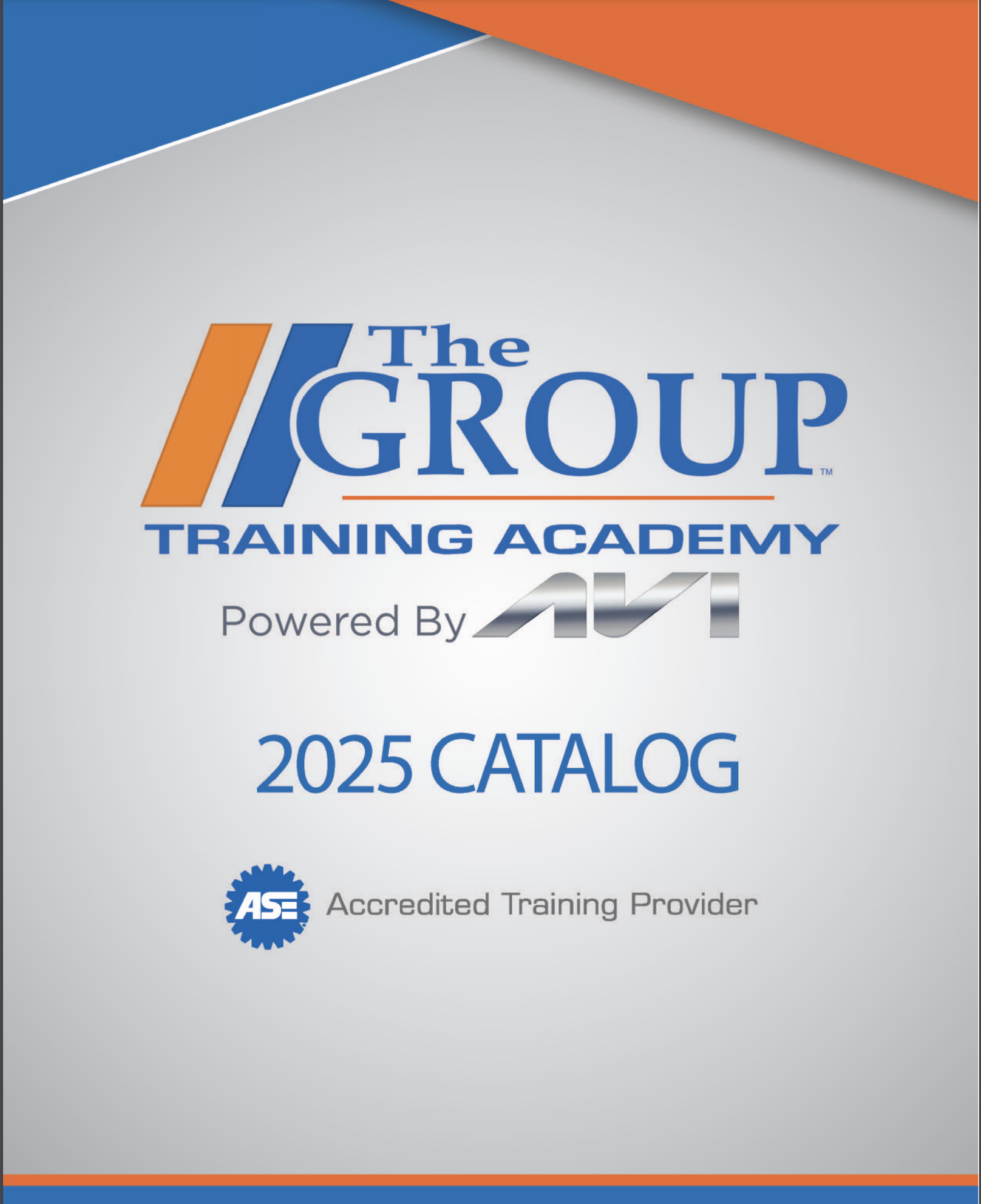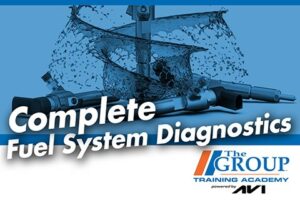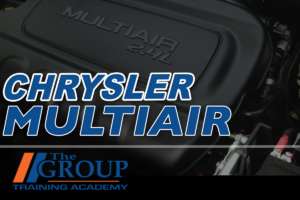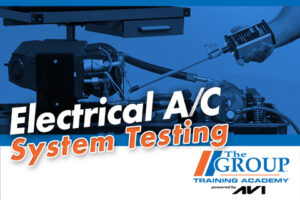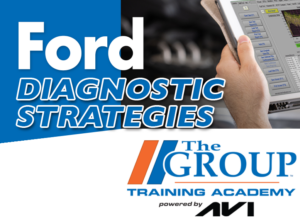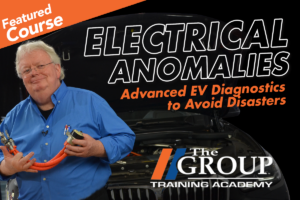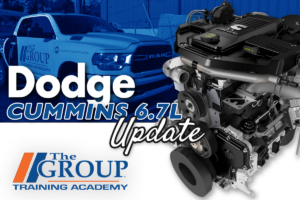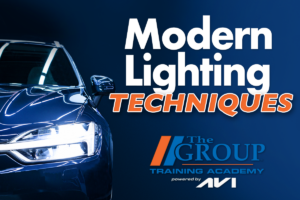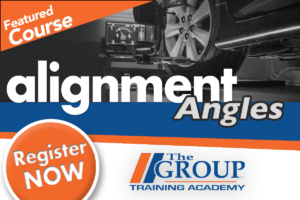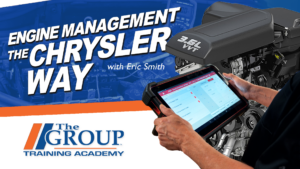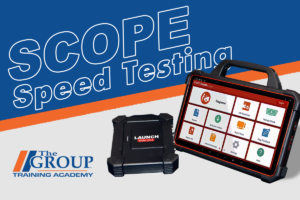New and Upcoming Courses
Recent Release!
ASE 101 Test Tips
Welcome to ASE 101 Test Tips! These series of videos have been designed to help you sharpen your skills before taking your ASE certification exam. These test tips will cover ASE A1 through ASE A8.
Check back regularly for new updates. You will get a close look at automotive systems and hear explanations and see demonstrations that will help you when it comes to taking your ASE certification test.
June Featured Course Now Available:
LBT-482 Complete Fuel System Diagnostics
Complete Fuel System Diagnostics is a comprehensive training course designed for automotive professionals looking to deepen their understanding of modern fuel systems. Led by Bosch Instructor Karl Schneider, this course covers essential topics ranging from the composition of intake and exhaust gases to the intricacies of fuel injection along with fuel filters and tank cleaning practices. Participants will gain valuable insights into the chemical processes within the combustion chamber, learn about emission control technologies, and acquire practical skills for maintaining and servicing fuel systems.
Topics Covered:
- Introduction to Combustion Gases
- Emission Control
- Fuel System Components
- Fuel Tank Maintenance
- And More!
May Featured Course Now Available:
LBT-466 Chrysler MultiAir
Chrysler MultiAir is one of Chrysler’s most exciting engine systems. MultiAir technology represents a leap forward in automotive engineering, offering improved fuel efficiency, enhanced performance, and reduced emissions. This course takes a close look at the hydraulic systems and diagnostics used with MultiAir engines. You will have a solid understanding of how MultiAir functions, service considerations, and important maintenance tips.
Topics Covered:
- MultiAir Overview
- Normal Engine Operation
- Cranking: MultiAir Issue
- Variable Valve Phases
- Exhaust and Intake Valves
- And More!
April Featured Course Now Available:
LBT-461 Millennial Perspective: What I Want From an Auto Repair Shop
As the automotive industry evolves and adapts to the digital age, repair shops must understand millennials’ unique preferences and demands. Born between the early 1980s and the late 1990s, millennials have grown up in a world shaped by rapid technological advancements and transformative cultural shifts. With their extensive access to information and a penchant for digital solutions, they bring forth a distinct set of expectations when it comes to automotive repair experiences.
Topics Covered:
- Who Are Millennials?
- Is Gen Y Killing Industries?
- Who is More Likely to Voice Complaints?
- Social Media
- Personalized Services
- And More!
March Featured Course Now Available:
LBT-476 Electrical AC System Testing
This course is presented by training director Tom Rayk. Tom covers topics such as reestablishing air conditioning system theory while also reviewing the different types of oils and dyes compatible with conventional, hybrid, and EV systems used by the industry today. He will also provide crucial tips to follow when diagnosing modern air conditioning systems.
Topics Covered:
- Theory Of Operation
- R134A/R1234yf
- Electric Compressors
- Oil Separators
- Refrigerant Identification
- And More!
February Featured Course Now Available:
LBT-474 Ford Diagnostic Stratgies
This comprehensive program delves into advanced diagnostic strategies, utilizing cutting-edge tools such as Ford’s factory J2534 diagnostic software (FJDS) and the powerful pico scope movie feature. Throughout the course, participants will gain a deep understanding of diagnostic strategies tailored to Ford vehicles, providing a solid foundation for troubleshooting complex issues. The curriculum explores Engine Modes of Operation, shedding light on the intricacies of various modes and their impact on diagnostics. Participants will also master the Tip-In Strategy, honing their ability to identify and resolve issues related to this critical aspect of engine performance. Join us and elevate your diagnostic expertise to new heights with “Ford Diagnostic Strategies”.
Topics Covered:
- FDRS Scan Tool
- OBD Modes Of Operation
- Critical Sensors
- Engine Integrity
- Fuel Systems
- And More!
January Featured Course Now Available:
LBT-471 Electrical Anomalies
This course, “ Electrical Anomalies,” is a look at EV/HEV/PHEV anomalies; electrical issues that deviate from what is normal and expected. The purpose of this program is to give professional technicians technical explanations on various electrical anomalies they may encounter on HEV, PHEV, and BEV vehicles. You will see some of the unique challenges related to troubleshooting modern electric and hybrid vehicle voltage systems. This course examines electrical systems and some of the mysteries behind HV connections, leakage, and the HV system main contactor relays. This course also covers overlooked essential subjects such as motor current draw, A/C circuits, ohmmeter false positives in parasitic drains, measuring interlock relay outputs, and trouble codes associated with common problems.
Topics:
- High Voltage Interlock Circuits (HVIL)
- Diagnosing HV System Interlock Circuits (P0A0D)
- HVIL Circuits – Vary with OEMs / Models
- Live-Dead-Live High Voltage Verifications (Jeep 4XE)
- 2021 Jeep Wrangler Limited “4XE” Power Down & Test
- BMW I-3 HV Power Down Low Voltage Plug
December Featured Course Now Available:
LBT-468 Dodge Cummins Diesel 6.7L Update
Learn about what’s new with 6.7 Cummins engines as of 2019. This course will cover key areas that were changed, and what makes diagnosing and servicing them different along with the performance and durability improvements provided by these changes. We will also take a deep dive into the fuel systems and what to watch out for concerning high-pressure pump and injector failures. This course will also cover valvetrain, emissions systems, and turbocharger concerns.
Topics:
- 6.7 Engine Specifications
- 2019 Upgrades
- Asphaltenes
- Fuel Filter Replacement and Priming Procedures
- CP3 and CP4
- Reading Scan Data
- Injector Testing
- And More
November Featured Course Now Available:
LBT-467 Modern Lighting
Headlights have been a part of automobiles back to the beginning when lanterns were used as headlights. Headlights serve one main purpose which is to illuminate the road. Headlight bulbs have evolved from simple filaments to complex HID, LED, and laser designs. Headlights must provide enough light at highway speeds to ensure the safety of the driver but at the same time cannot blind oncoming traffic. Nanotechnology has led to LED micromirror designs that were not possible in the earlier years of the automobile. This course will explore new headlight designs, and break down the differences between Candelas, lumens, watts, Kelvin, and pixels. This course covers generic headlight aiming procedures and DOT regulations. We have also included a section on headlight control systems which illustrates the complex design used in late model vehicles.
Topics:
- Modern Lighting Overview
- Modern Lighting/Adaptive Headlights
- Modern Lighting Testing
- Modern Lighting Controls
- Aiming Headlights
- Diagnostics
October Featured Course Now Available:
LBT-464 Alignment Angles
In its most basic form, a wheel alignment consists of adjusting the angles of the wheels so that they are perpendicular to the ground and parallel to each other. The purpose of these adjustments is maximum tire life and a vehicle that tracks straight and true when driving along a straight and level road. This course covers important steps used to perform different alignment on a variety of vehicles.
Topics Covered Include:
- Vehicle handling
- Alignment equipment
- Caster, camber, toe, and thrust angle
- Additional alignment factors
- Locker installation
- AND MORE!
September Featured Course Now Available:
LBT-460 Engine Management: The Chrysler Way
Chrysler engine management tends to be different than other manufacturers in many way. There are some misconceptions technicians often have that slow the diagnostic process. What you may have heard about Chrysler engine management and what’s really going on can be quite different. This course will features hands-on testing techniques to help fix Chrysler vehicles right the first time!
Topics Covered Include:
- Changes in modern Chrysler Engine Control Systems
- Speed Density Review
- Narrow and Wide-Band O2 Sensors
- Fuel Trim / Adaptives
- Misfire Monitor and Adaptive Numerator
- Fuel Pump Control Modules
August Featured Course Now Available:
LBT-459 Scope Speed Testing
Automakers continuously evolve vehicle communications, electronics, and system integration at increasing speeds. Your scan tool may or may not provide codes relevant to the actual root of your problem and some signals are just too fast. This is why you must go beyond the codes and capture real-time data and waveforms to accomplish your repair. Lab scope diagnostics and testing is the ultimate level-up in a technician’s career, especially on those hard-to-fix or hidden faults not limited to electrical but mechanical as well!
Topics Covered Include:
- Attributes & Features to Look for in a Lab Scope
- Probes & Accessories
- Find your Target Pattern
- Rotating Assembly Analysis
- Amperage Ramp Analysis
- Intermittent Scope Capture
- AND MORE!
LBT-458 Hybrid and EV Tools
This course examines the proper use and inspection of personal protective equipment, including electrical safety gloves. In addition to presenting each tool, Hybrid and EV Tools gives specific application demonstrations for each tool with real world scenario diagnostic tests. Each tool is demonstrated in an application relating to Electric and Hybrid vehicles and how you can use your tools to be safe, efficient and fix the cars correctly.
Objectives:
After completing this class, the viewer will
Describe the use of the following tools:
-
- Milli-Ohm Meter
- Insulation Resistance Tester (Mega-Ohm Meter)
- Cat III 1,000V DVOM
- Pole Voltage Fluke Proving Unit
- 2-Pole Voltage & Continuity Tester
- Fluke 1503 Insulation Tester
- Identify safety labeling on HV gloves
- Compare the differences between electrical equipment categories
- Perform tests using test equipment needed
- Safely and accurately diagnose Hybrid and EV

